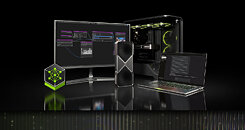
Windows 12 Delayed as Microsoft Prepares Windows 11 25H2 Update
Microsoft has quietly set aside plans for a standalone "Windows 12" release and will instead introduce its next major feature update as Windows 11 version 25H2 later this year. On Friday, the company confirmed that the latest Insider Preview build is now available for testers, with a broader rollout scheduled in the second half of 2025. From a technical perspective, version 25H2 builds on the same platform and servicing stack as the current 24H2 release. This shared‑branch strategy allows devices already running 24H2 to receive a small enablement package and then restart. The entire process is designed to feel no different from installing a routine monthly update, avoiding a lengthy reinstall. At this stage, the 25H2 preview offers the same feature set that appeared in the 24H2 Beta Channel.
Microsoft has explained that upcoming enhancements are already staged within the 24H2 branch in a disabled state. As each feature reaches maturity, its code will be bundled into the monthly cumulative updates for 24H2 and then activated via the enablement package, following the model first introduced with Windows 10 version 1909. As official support for Windows 10 ends in October 2025, launching version 25H2 in the September-October window could encourage any remaining Windows 10 users to upgrade. Enterprises and educational institutions will benefit from a renewed 36-month support cycle, while consumer editions will gain 24 months of servicing. Microsoft has not yet provided an exact date for general availability, but Windows Insiders can begin exploring the 25H2 preview today and submit feedback. When the update becomes widely available, users can perform a simple restart to activate Windows 11 version 25H2.
Microsoft has explained that upcoming enhancements are already staged within the 24H2 branch in a disabled state. As each feature reaches maturity, its code will be bundled into the monthly cumulative updates for 24H2 and then activated via the enablement package, following the model first introduced with Windows 10 version 1909. As official support for Windows 10 ends in October 2025, launching version 25H2 in the September-October window could encourage any remaining Windows 10 users to upgrade. Enterprises and educational institutions will benefit from a renewed 36-month support cycle, while consumer editions will gain 24 months of servicing. Microsoft has not yet provided an exact date for general availability, but Windows Insiders can begin exploring the 25H2 preview today and submit feedback. When the update becomes widely available, users can perform a simple restart to activate Windows 11 version 25H2.
















































